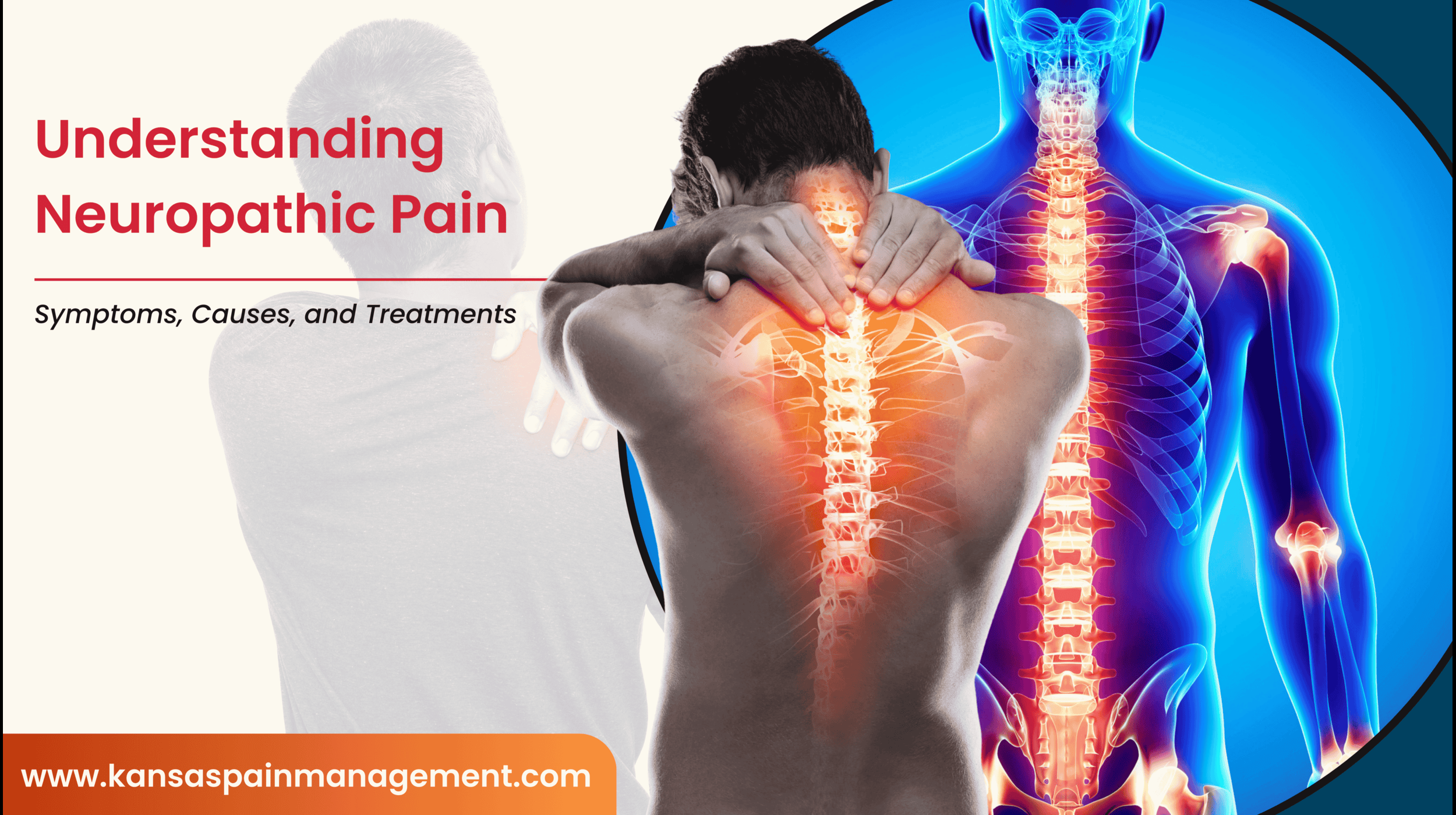Neuropathic pain is a type of chronic pain that happens when the nerves themselves are damaged or not working properly. Unlike typical pain from an injury, neuropathic pain is often described as burning, tingling, stabbing, or shooting sensations. It can interfere with sleep, mood, and daily activities, making it one of the most challenging types of pain to live with.
At Kansas Pain Management, we specialize in diagnosing and treating neuropathic pain so patients can get back to living life with less discomfort.
What Is Neuropathic Pain?
Normally, pain signals travel from the body to the brain when there is an injury or illness. But with neuropathic pain, the nerves send false or exaggerated signals even when there is no injury. This makes the pain feel constant, severe, or disproportionate to the cause.
Common Symptoms of Neuropathic Pain
Patients with neuropathic pain may experience:
- Burning or searing pain
- Electric shock–like jolts
- Tingling or “pins and needles”
- Numbness or sensitivity to touch
- Pain that worsens at night
- Muscle weakness or cramping in affected areas
Causes of Neuropathic Pain
Neuropathic pain can develop from a wide range of conditions, including:
- Diabetes (diabetic neuropathy)
- Shingles (postherpetic neuralgia)
- Pinched nerves in the spine (such as sciatica)
- Spinal cord injuries
- Multiple sclerosis or other neurological disorders
- Chemotherapy or certain medications
- Traumatic injuries that damage nerves
How Neuropathic Pain Is Diagnosed
A pain specialist will review your medical history, perform a physical exam, and may recommend tests such as:
- Nerve conduction studies
- Imaging (MRI/CT scans) to check for spinal or nerve compression
- Blood work to look for underlying conditions like diabetes
Treatment Options for Neuropathic Pain
At Kansas Pain Management, we use advanced therapies to treat the root cause of neuropathic pain. Options include:
1. Medications
- Nerve pain–specific medications (such as gabapentin or pregabalin)
- Antidepressants that also reduce nerve pain
- Topical creams and patches
2. Interventional Pain Procedures
- Nerve blocks to reduce inflammation and calm pain signals
- Epidural steroid injections for spine-related nerve pain
- Radiofrequency ablation (RFA) to stop overactive pain signals
- Spinal cord stimulation for long-term nerve pain relief
3. Lifestyle & Supportive Care
- Physical therapy to improve mobility and reduce pain
- Nutritional counseling (important in diabetes-related pain)
- Stress management and relaxation techniques
Living with Neuropathic Pain
While neuropathic pain can be long-lasting, the right treatment plan can dramatically improve quality of life. Patients often benefit from a combination of interventional procedures, medications, and lifestyle changes tailored to their condition.
At Kansas Pain Management, our goal is to provide personalized care so every patient gets lasting relief and a path back to daily activities.
✅ If you are struggling with nerve-related pain, schedule a consultation with Kansas Pain Management today. Relief is possible.







